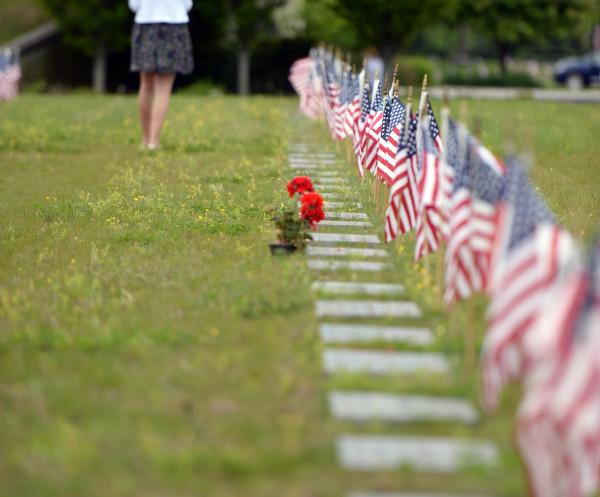

Editor’s note: This article by Hope Hodge Seck originally appeared on Military.com, a leading source of news for the military and veteran community
A military veteran from Oregon died over the weekend from the novel coronavirus, in what is the first fatal case tracked by the Department of Veterans Affairs and the first military-linked fatality to be made public.
The man, in his 70s, died Saturday at the VA Portland Healthcare System due to complications from the disease, a VA official confirmed to Military.com.
“This case was previously reported as a presumptive positive in an earlier case count,” the official said.
The VA has also updated its rolling tally of cases of coronavirus, known officially as COVID-19, to reflect one death.
The VA is currently tracking five more confirmed coronavirus cases, four in the Western United States and one in Maine, as well as 25 presumptive positive cases around the country. Officials said in a release that they have administered “more than 100” COVID-19 tests to date.
Three of the confirmed cases are in VA inpatient care, as are 12 of the presumptive positives. The remainder are observing self-quarantine at home.
Oregon Gov. Kate Brown said in a statement Monday that the veteran represents the first coronavirus death in Oregon, adding that he had known underlying heart conditions.
“Although we knew this day would come, it does not make it any easier to learn of the first Oregonian to succumb to this illness — an honored veteran who served his country to protect the freedoms we all hold dear,” she said. “The loss of one life to this disease is too many. Already, thousands around the world have felt the pain that casts its shadow over one family here in Oregon.”
She urged Oregonians to honor the man’s memory by taking the recommended steps to slow the spread of disease, including observing social distancing guidelines, staying home if sick and avoiding large gatherings.
“When several more Oregonians are at this moment battling COVID-19, I ask you to join me in honoring this person’s memory by taking the steps we know are necessary to prevent the further spread of this disease,” she said. “By taking action together, we can help to slow the rate of infection and protect our friends, neighbors, and loved ones who are most vulnerable.”
VA officials say they’re proactively reaching out to veterans and asking screening questions to VA facility visitors.
“Fortunately, VA is ready,” officials said on an information page at VA.gov. “We have plans in place to protect everyone who gets care, visits or works at one of our facilities.”
This article originally appeared on Military.com
More articles from Military.com: